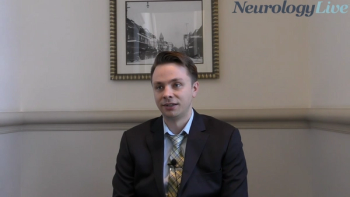
The postdoctoral scholar at the University of Iowa discussed the importance of understanding more about the effects of diet and how it is managed when caring for a patient with multiple sclerosis. [WATCH TIME 3 minutes]

The postdoctoral scholar at the University of Iowa discussed the importance of understanding more about the effects of diet and how it is managed when caring for a patient with multiple sclerosis. [WATCH TIME 3 minutes]

The associate professor of Physical Medicine & Rehabilitation and research nonclinical psychologist at the University of Michigan Medicine discussed challenges when addressing fatigue, as well as the need to integrate digital tools for patients with MS. [WATCH TIME: 4 minutes]
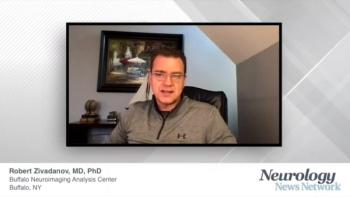
Robert Zivadinov, MD, PhD, provided insight on the different components that need to be addressed to help stop—and potentially reverse—neurodegeneration in MS.

A panel of experts debate the disadvantages and side effects of apomorphine therapies for Parkinson’s disease.
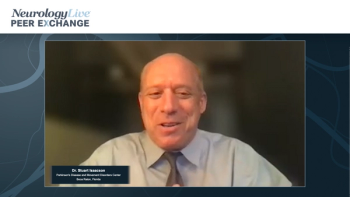
A discussion on the use of apomorphine subcutaneous injections in managing Parkinson’s disease.

Drs Thiele and Wirrell explain how clinicians diagnose patients with Dravet or Lennox-Gastaut syndromes and the typical triggers patients will exhibit.

Elizabeth Thiele, MD, PhD, and Elaine C. Wirrell, MD, discuss the commonality of childhood epilepsies, as well as the differences between Dravet syndrome and Lennox-Gastaut syndrome.

The director of the Comprehensive Epilepsy Center at NYU Langone discussed the critical findings on how heart rate variability may stratify individual SUDEP risk. [WATCH TIME: 4 minutes]

The associate professor of Physical Medicine & Rehabilitation and nonclinical research psychologist at University of Michigan Medicine discussed the complexities of fatigue as a symptom following her presentation at CMCS 2021.
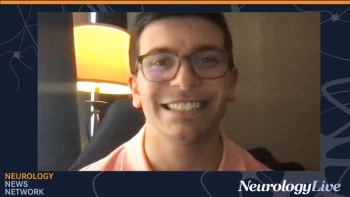
Neurology News Network for the week ending November 13, 2021.
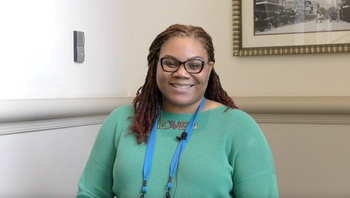
The founder and CEO of Joi Wellness Group Multiple Sclerosis Center described motivations behind the evaluation of ocrelizumab (Ocrevus; Genentech) in minority populations with multiple sclerosis.

Chris Winter, MD, reflects on the challenges in reaching a differential diagnosis of narcolepsy given the number of diseases with similar presentations.

A brief overview of clinically available on-demand therapies used to manage morning OFF episodes in patients with Parkinson disease.
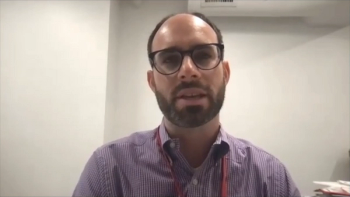
The assistant professor of neurology at Weill Cornell Medicine discussed the results of the NAVIGATE-ESUS trial and whether stroke experts should change how they use anticoagulants.

Expert neurologist Peter A. LeWitt, MD, reflects on the challenges inherent in treating morning OFF episodes in patients with Parkinson disease.

An expert shares broad perspective on narcolepsy, discussing its causes, differences between types 1 and 2, and symptoms that may occur in patients.

Outlining the development of the CHIMES trial in multiple sclerosis, the founder and CEO of Joi Life Wellness Group Multiple Sclerosis Center spoke on tactics to get underrepresented populations involved. [WATCH TIME: 2 minutes]

A multiple sclerosis expert gives insight on which types of investigational agents may be able to repair neurodegeneration lost from disease progression.

The founder and CEO of Joi Life Wellness Group Multiple Sclerosis Center outlined the motivations behind the trial, as well as potential reasons for underrepresentation. [WATCH TIME: 2 minutes]
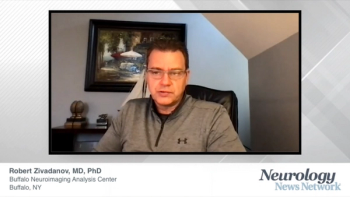
Robert Zivadinov, MD, PhD, provides thoughts on hurdles of conducting clinical trials that incorporate imaging techniques sensitive and specific to myelin for patients with multiple sclerosis.
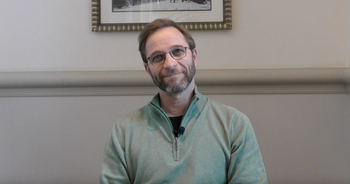
The chief of the Multiple Sclerosis Division, Perelman School of Medicine at the University of Pennsylvania emphasized current recommendations, which suggest patients with MS get vaccinated for COVID-19. [WATCH TIME: 3 minutes]

An multiple sclerosis expert shares his thoughts on enhancing myelin regeneration and repair to counteract neurodegeneration in patients with multiple sclerosis.
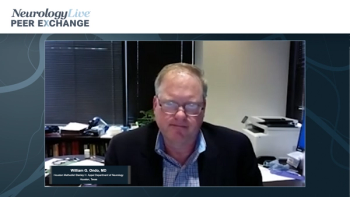
Neurologists debate the use of levodopa inhalation powder in managing Parkinson’s disease.
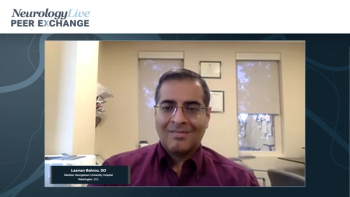
Physicians discuss when to add on-demand therapies to Parkinson’s disease management.

The professor of neurology at the NYU Grossman School of Medicine provided his thoughts on the most notable strides within the multiple sclerosis field in the past year. [WATCH TIME: 3 minutes]

The director of the Multiple Sclerosis Achievement Center in Sacramento discussed 3-year data from an assessment of the program, outlining key findings and future research efforts. [WATCH TIME: 6 minutes]
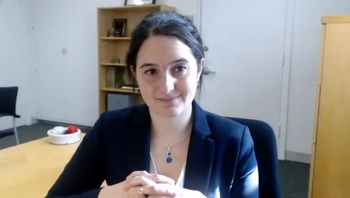
The staff neurologist at the Mellen Center for Multiple Sclerosis Treatment and Research at Cleveland Clinic shared her perspective on the use of telemedicine in MS care, what challenges it can address, and the need to optimize its use. [WATCH TIME: 6 minutes]
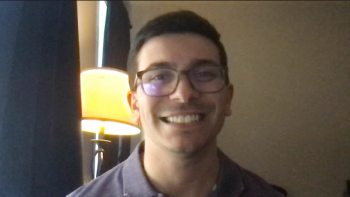
Neurology News Network for the week ending November 6, 2021.

The chief of the Multiple Sclerosis Division at the Perelman School of Medicine, University of Pennsylvania, discussed recommendations for COVID-19 vaccination in this patient population, specifically for those on disease-modifying therapies. [WATCH TIME: 2 minutes]

The director of the Multiple Sclerosis Achievement Center outlined the design of the wellness programs, which are held in 2 different formats. [WATCH TIME: 4 minutes]